Marinades are surefire ways to elevate the flavor of your food to the next level. Marinating meat can add a bold kick to your dish with only a few simple ingredients. Ditch the store-bought sauces and start crafting your own at home in minutes!
This post is part of our Basic Cooking Skills series. Each week we will be doing a deep-dive into one basic cooking skill and a brand new recipe to accompany it to practice that newfound skill. Check back throughout the series for updates and new posts.
What does it mean to marinate meat?
Marinating is the process of soaking food in a liquid mixture. The goal of marinating meat is to increase the flavor and tenderness of food.
It can often be thought of as the first step of the cooking process. Meat marinades shorten the cooking time needed by beginning to break down some of the tough proteins that usually aren’t broken down until placed over heat.
Decreased time over heat = increased moisture content, creating even juicer and flavorful meat.
So while marinades may take a little more forethought on your part, they can definitely save you time in the kitchen and are very worthwhile!
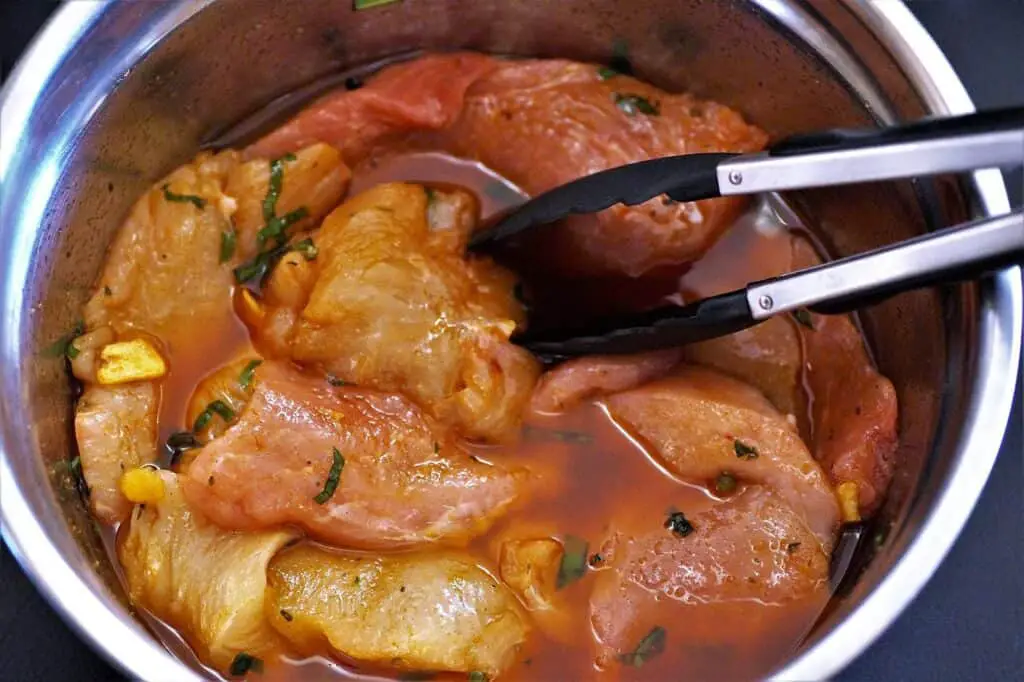
Benefits of marinating meat
An exceptional marinade will do 2 things: increase the flavor and tenderize the meat.
4 Elements of Cooking taught us that acid greatly affects the texture of food. Ingredients such as citrus, vinegar, or buttermilk are vital in tenderizing meat and fish.
Soaking the meat in liquids for an extended period of time really locks in the moisture so the meat won’t be as likely to dry out when it’s cooked.
In addition to that, marinades themselves can be customized to different cuisines and LOADED with delicious flavors! Spicy, sweet, savory, and bitter are just a few of the diverse tastes you can incorporate into your meal with a marinade.
Marinating Guide
Best ingredients for a marinade
A typical marinade contains the following: an acid, fats, salt, and seasoning.
- Acid – the key to tenderness! Acids kickstarts the cooking process, breaking down surface proteins and adding sharp flavor.
- Examples: citrus juice, vinegar, wine
- Fat – and lots of it! Fat helps the meat maintain its moisture content and balances out the harshness of the acid.
- Examples: cooking oils, mayonnaise, yogurt
- Salt – more than just a flavor booster. Salt draws out juice from inside the meat, forming a delicious brine on the surface.
- Examples: sea salt, soy sauce, miso
- Seasoning – here’s where the customization kicks in! Endless amounts of herbs and spices can be added to create practically any flavor profile you desire.
- Examples: ginger, garlic, pepper, basil, thyme, curry paste, sauces, and more
Materials Needed
Best amount of time to marinate
Time is an important factor for a perfect marinade. Meat needs time to soak in the marinade to allow the flavors to transfer and the meat to become tender. At the minimum, 30 minutes will do the trick but if you can plan ahead enough, longer is usually better.
Take heed that marinades with LOTS of acid can have the reverse effect and toughen meat with increased time, so I tend to keep the acid content low or soak the meat for shorter periods of time.
- Chicken
- A whole chicken should marinate in your fridge for up to 24 hours before cooking. These marinades can be simple, just salt or salt and buttermilk, but are complete game changers.
- Chicken breasts should marinate for 2-4 hours, but can last in your fridge overnight.
- Pork
- Tougher or larger cuts of pork can be marinated for upwards of 8 – 10 hours, with whole shoulders needing up to 24 hours.
- Already tender loins of pork chops should marinate for 2-4 hours.
- Beef
- For tougher cuts of steak, marinate for up to 24 hours to tenderize the meat.
- High quality cuts of steak are tender and flavorful at purchase and typically do not need the benefits of a marinade.
- Seafood
- The quickest of all marinades!
- Seafood like shrimp or fish should only marinate for 30 minutes. They are very fragile and could start to turn after an hour of soaking.
best way to cook marinated meat
- Grilling
- The go-to method when using marinades! Grilling has all the right features to cook meat that’s been marinated to give you that deep caramelized touch: high temperatures and lots of air flow.
- Roasting
- Hot oven temps are perfect for increasing the moisture content of smaller pieces of meat that run the risk of drying out, like chicken breasts. Longer roasts work well as long as you are cautious of using ingredients that are likely to burn, such as soy sauce or sugars.
- And sometimes Sauteing
- Marinated meat can definitely be cooked in a skillet on a stove, but just doesn’t get that crispy sear that roasting or grilling does.
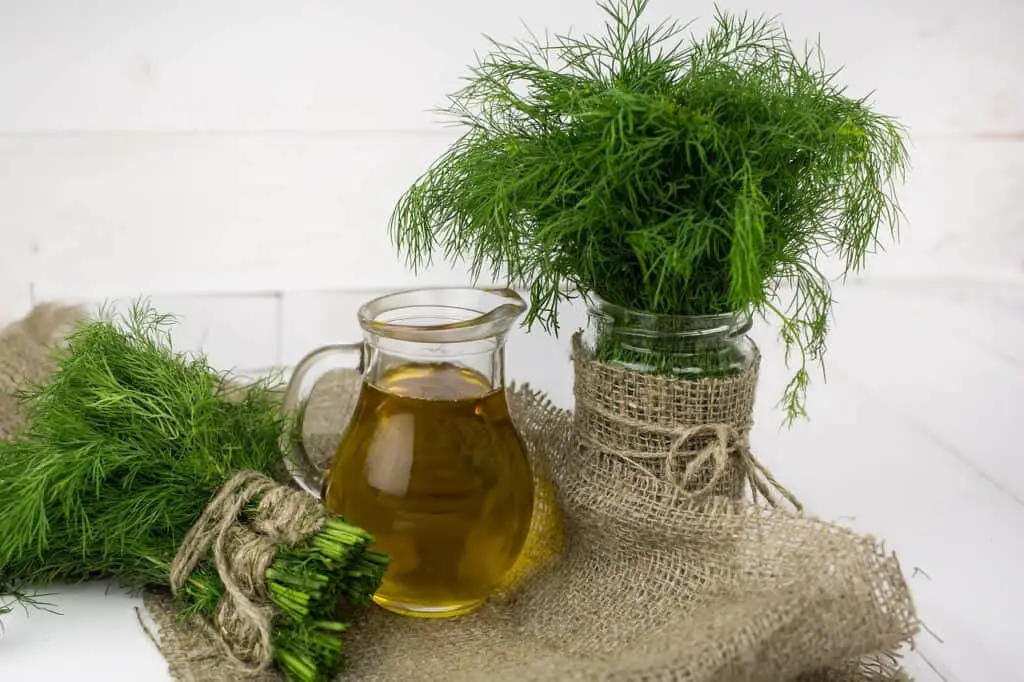
different types of marinades
- There are endless combinations of seasonings and spices to use depending on the type of meal you are making. Think garlic, herbs, and peppers.
- Italian: white or red wine vinegar, lemon juice, olive oil, salt, mix of oregano/basil/oregano
- Japanese: rice wine vinegar, olive oil, soy sauce, ginger
- Mexican: lime juice, olive oil, salt, cumin/chili powder/onion powder, garlic, cilantro
- Indian: lemon juice, yogurt, salt, garlic, ginger, garam masala
tips for marinating meat
- Using marinades before cooking at high temps, such as with grilling, can decrease the amount of carcinogenic chemicals. The jury is still out on exactly WHY this is so but there are lots of fascinating scientific papers on it!
- Marination should always occur in the fridge — not at room temperature
- Do NOT reuse uncooked marinade. Make a little extra on the side if you’re wanting to have a sauce.
- Different meats should be marinated for different amounts of time.
- More surface area = more flavor.
- The basic makeup of a marinade is 1 part acid, 2 parts fat, with a little salt and seasoning.
- Acids can easily overpower the taste, so generally less is more.
- Sugars can easily burn so keep a close eye on your meat while cooking.
- Chicken/poultry should be used within 2 days of marinating; beef and other meat should be used within 5 days.
Pin me!

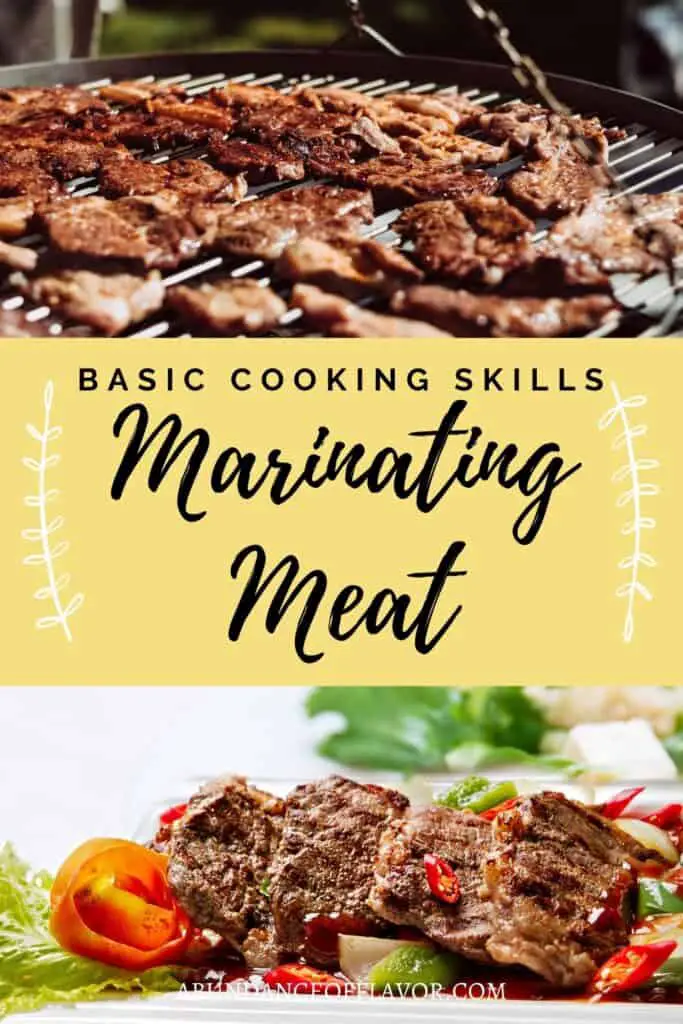

Do you have any favorite marinades to use? Share your ideas in the comments below!
Be on the lookout, this Thursday there’s a delicious recipe coming up to try out a Hawaiian marinade!

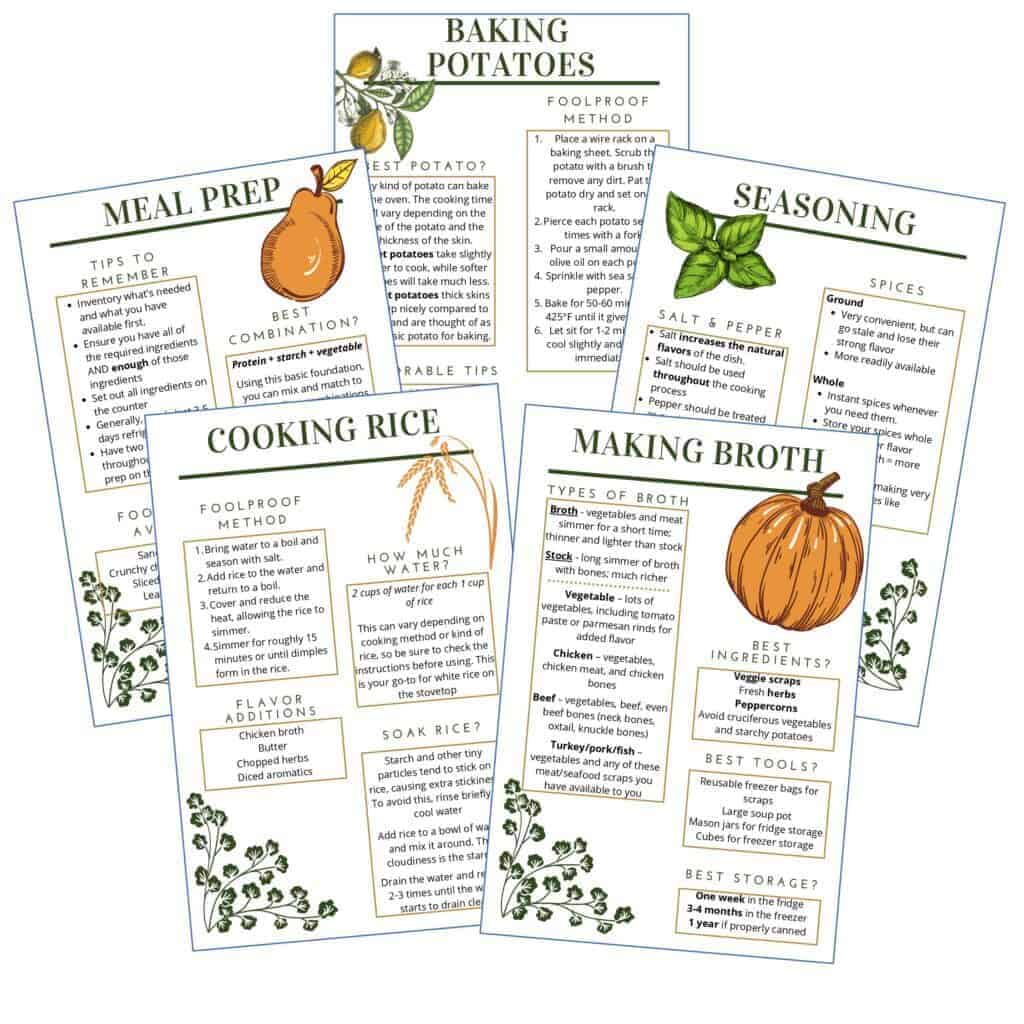

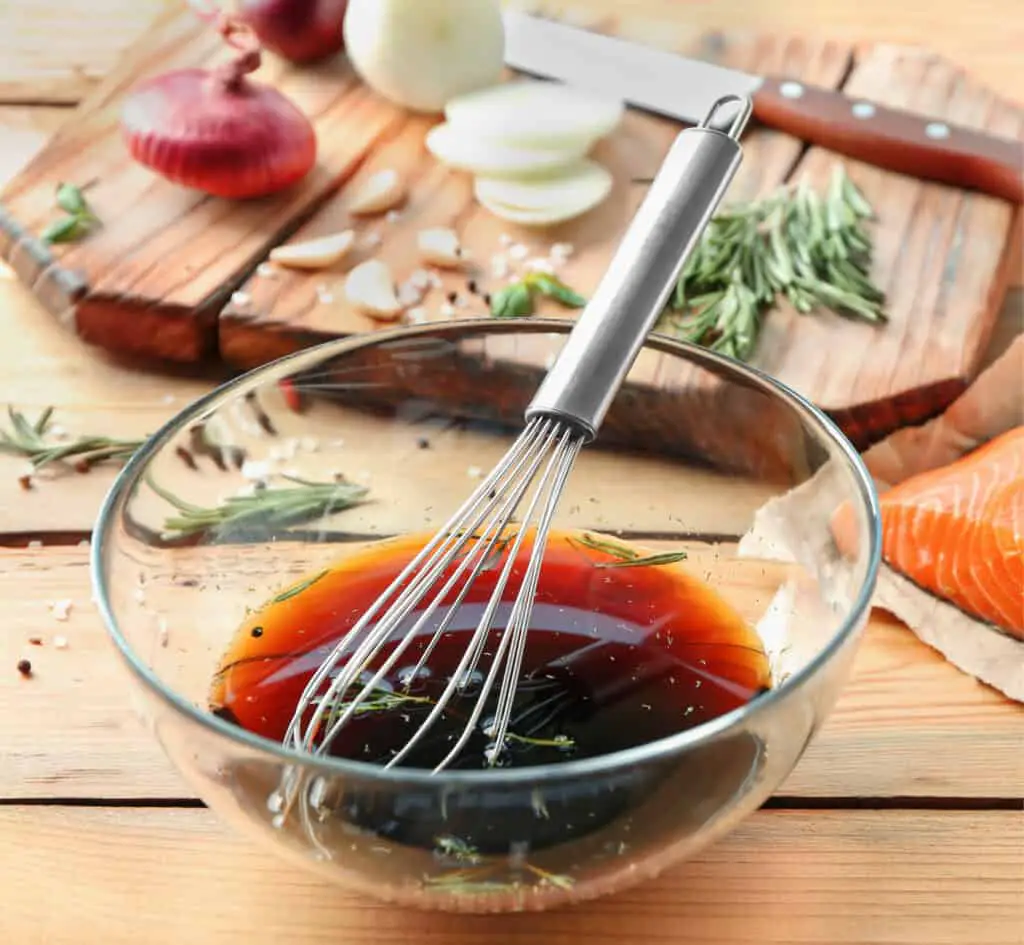



Good read, turns out I don’t marinate my meats long enough haha
Yep I never used to either! lol
Great Post some amazing information on marinades. I love marinating pork and chicken especially when going to be cooked on the bbq
Marinades just shine after a good grilling session! Thanks for reading 🙂
I needed this! Trying out some new flavours recently so this is perfect.
Yay I’m glad! Thanks for checking it out!
This is such a helpful post for anyone wanting to add a bit more flavour to their food. Personally I love marinating meat.
I’m going to try using marinades more, I definitely don’t do it enough!
I love experimenting with my own combinations to marinate meat. You have a lot of good tips in here. I definitely have to get better at planning ahead and marinating longer. Thanks!
Thanks so much! I love creating lots of different combinations for marinades
Reading this is making me hungry, haha. Anyways, this is such a great post! I’ve started learning how to marinade meat and I’m glad I was doing it correctly. x
haha yay that’s great!
I never really knew a lot of this. We usually just kind of wing it LOL. Thanks for sharing!
I used to do the same with marinades! lol
I usually marinate with soy sauce combined with different ingredients each time. Juices (lime, orange, pineapple) sugar ( honey, brown sugar.etc.) and other items (garlic, ginger, peppers, ). Always turns out favorable!
sounds like you have the contents of a marinade down pat! 😉
Great post! Thank you for sharing this! It is so useful!
I’m glad to hear it, thanks so much!
Great and informative post ! I thought marinating my meat for 20 minutes before I cook was long enough, turns out I was wrong haha !
Will try it out next time
There was a lot I thought I knew when it came to marinades 🙂
The best meat that I love when it has been marinated is ham, especially the fact that my mum coats it in honey and wholegrain mustard, it’s so gorgeous and tender, it just makes the meat taste so much better. I’m hungry now 😂 haha
Yum, I don’t cook ham often but that sounds so savory!!
Lots of great info here!
Thank you!
I love that you provide examples of marinades used for different cuisines, as quarantine has inspired me to try new things out! I also love that you explained what each ingredient of a marinade does. The only one I knew was that the salt brings out the juices. I’m much more likely to use ingredients if I understand how they enhance flavor so for me, this along with tips on ratios were great info! Great post 💜
Thank you so much! I love understanding why I’m “supposed” to do certain things while cooking, so learning lots of info helps me a bunch!
I learn so much with your posts! I love meat, I think it’s a great addition to any dish. We don’t marinate as much as we should, it adds so much flavour but I find it takes a lot of time. Thank you for sharing! These tips are really helpful.!
Em | http://www.loveemblog.com
Thanks so much! I totally agree, usually it’s already too late to start a marinade when I’m thinking of dinnertime. One day when I’m better at planning out my meals maybe I can use marinades more haha
Thanks for sharing your tips, I don’t marinate meat when I cook it as sometimes the marinate contains a bit of sugar which sometimes is not great, but I will try a dish at one point where I do 🙂
Nic | Nic’s Adventures & Bakes
Nice! I prefer little to no sugar in my marinades. If anything, I’ll use honey occasionally butI find sugar isn’t really needed often!
Wow these looks delicious! And the photos are awesome!
Thanks so much!
Wow, I had no idea there was a formula to creating a great marinade! Definitely taking notes from this haha, maybe my meats will come out better next time x
Yay I hope so! Thanks for checking it out!
Good tips, I always put my protein in the fridge to marinate. But I do it for 20 to 30 minutes😂. Turns out I’m wrong. Thanks for sharing
That’s better than no time but it’s crazy how LONG meat should be marinated for optimum flavor
Thanks for all of the tips.
Of course, thanks for reading!
Came across many Cooking related biog recently, but this post is odd one out. Really informative…I was really unaware about this much details about marinating’
Thanks
Thanks so much for reading and commenting 🙂
As always: very helpful post! I needed this because of the too much cooking I am doing lately! Thank you for sharing
I feel like everyone’s kitchens are working overtime lately 🙂 Thanks for reading!
I hadn’t realised that marinating meat had such a huge effect on the cooking times, this was so interesting. I think a Mexican marinade would be my flavour of choice – but they all sound delicious! Lisa
Yum, I especially love shrimp in a mexican-inspired marinade!!
Wow, these tips are amazing. I love cooking and enjoying good food and those tips will be so helpful. I will pin to refer to it at a later date. Thank you for sharing!
Darina from daramiblog
I’m so glad it could be helpful, thanks!
This is a great post! I didn’t really know how long to marinate different cuts of meat.
Before researching it I didn’t know there was such a huge difference!
Reading this just made me crave some serious deliciousness at almost 11 pm, I’ll have to try this!
Haha lovely late night cravings 🙂 Thanks for reading!
Trying out these tips this weekend 🙂
yay! thanks for checking it out!
Coming from South Africa, barbecuing (we call it braai) is something we do very often (a few times a week). I’m really into marinating certain cuts of meat, and your article is spot on!
For beef cuts, you can’t go wrong with some olive oil, lemon juice, salt & pepper, crushed garlic or garlic powder, Worcester sauce, and the odd few spices (my secret). Haha
How interesting, I’ll try to remember braai. Your beef marinade sounds SO good!
I’m going to save this post. Great tips, especially with the different varieties of marinades.
Thanks so much! 🙂
Great tips – as always in these cooking blog posts! I love marinated meat but I never actually do it. I marinated pork once in honey, soy and garlic and it was delish!
Yum that sounds like a great combo!
Pingback: Baked Hawaiian Chicken Kebabs - Abundance of Flavor
I feel silly for not knowing that different types of food need different marinating times.. haha this post is insanely helpful as I’m a relatively new to the cooking scene, thanks for the helpful tips!!
xo Bri
I was in the exact same place before researching all of this! Who knew?? lol
My friend wants to surprise his in-laws by showing them his ability to learn things fast! I never knew that you could add flavor to meat by adding a combination of seasoning and other ingredients! I believe we should probably visit a shop that sells various meat seasoning options as a start.